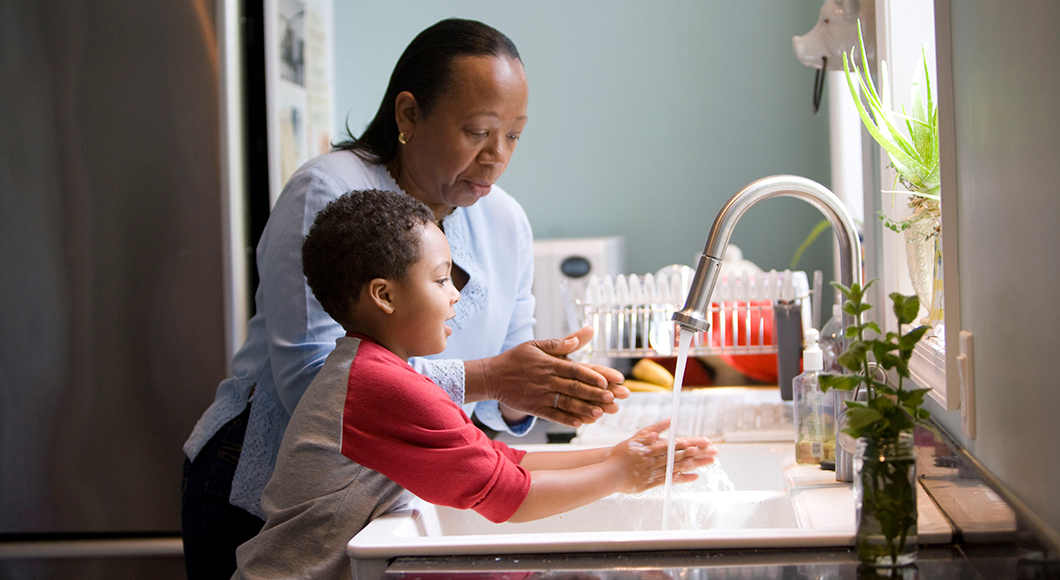Some crises are personal, and some are at large. We are currently experiencing a shocking worldwide pandemic of sorts, and we’ve had so much time to anticipate this entering our personal little worlds. The time is now, and people tend to either be panicked, ignoring it altogether, or just trying to do their part to help contain things. What about our kids? What’s our parenting move when it feels like the world is on fire?!
 To be frank, I wrote the outline for this topic before any of this coronavirus craziness hit. After realizing what was happening in the world, I’d like to add that it is a critical time to deal with our anxieties. Whether we are anxious for a valid reason or not, it is impacting us. It’s time to de-stress and talk to our kiddos about what is happening.
To be frank, I wrote the outline for this topic before any of this coronavirus craziness hit. After realizing what was happening in the world, I’d like to add that it is a critical time to deal with our anxieties. Whether we are anxious for a valid reason or not, it is impacting us. It’s time to de-stress and talk to our kiddos about what is happening.
10 Tips on Talking to Kids About a Crisis
- Sprinkle in Some “Hints” before revealing the big, bad news, especially if there is enough time to be proactive. For example, “Sometimes people can do really wrong, bad things,” or, “Insects don’t live as long as people. All things that are alive also die.” I find this extremely helpful to our children. It also helps us as we begin to reveal something hard. This is not a mandatory step, but it can facilitate acceptance of hard information a little bit at a time. Also, you don’t have to connect your statement directly to the bad news about to be told. Distancing from the situation as you discuss others’ dilemmas is strengthens his or her ability to accept the news later (when it does becomes more personal). Acceptance is a big deal in mental health; more to come on that!
- Just Do It. Take a deep breath, and try to state it simply and factually in a developmentally appropriate manner. Pick and choose the details you will reveal. It is great to frame it with positive words, if you can. It’s also okay if you can’t, especially if there is grief or loss involved. Speak about that lost or hurt loved one in an honoring way that acknowledges the bond with your child. (Side note: If you are revealing the death of a loved one to your child, it is advised to use the actual “d” word. It is the most clear to children to tell them that someone is “dead” or “died,” not passed away or gone.)
- Take Your Cues from Your Child. Ask if he or she has heard anything about it. This is powerful because you get to sit back a little and investigate! Figure out your child during this time. That is primarily how you are going to meet their needs anyway.
- Be Reassuring. Express that someone is taking great care of him or her during this time. Alleviate those any anxieties regarding immediate harm that could occur. In the case of coronavirus, describe the ways you are staying safe to your child, like washing hands and avoiding crowds. Be confident in those steps!
- Model How to Respond. Remember that your child will look to you to know how to respond. It’s okay to be sad or upset, but also teach how to be calm. This may mean putting your gut reaction on pause to some extent. You don’t need to necessarily react with your children in the same way that you’d grieve with your spouse or best friend. You are responding with your kiddos, not reacting. It’s crucial to recognize the difference in those two words! Edit your response with your children and teach how to deal with the impact of the news.
- Do Not Overwhelm. Avoid constant news or constant talk about it. Coronavirus is the perfect example of this. This takes self-control. Practice it for the sake of your mental health and for that of your kids. Remember 9/11 when we saw images over and over of the towers going down? It is not healthy emotionally to relive tragedy repeatedly in the mind. Though the reason we tend to want to do this is that we are processing, it is not good for mental health.
- Help Process and Find Purpose. Draw pictures for someone, make cookies for someone affected, write letters to a victim, or use piggy bank money to send to help relief efforts. Finding purpose is extremely powerful in the face of adversity. We know this to be a profound game changer in the face of grief and loss. Help your child turn sadness into something good. This is a life-long coping strategy that benefits everyone involved!
- Keep Routines. In the face of grief especially, it is comforting for kids to see the same classmates, do the same general routines, and find security in the normal, typical day. This is our biggest challenge with coronavirus right now, in my opinion. Routines have changed! How can you give that consistency that translates to a feeling of security? Think about what you do during other school holidays to make it through day-to-day, and do some of that if possible! Make a schedule, either with words and times on it. Try using pictures and times for children who aren’t reading yet. That is a gift! (Check out Fort Worth Moms’ Ultimate Guide to Surviving the Coronavirus Spring Break, which includes a printable schedule!) Put yourself in his or her shoes; wouldn’t a schedule be a relieving thing to receive from a loving parent when it seems like everything else is up in the air?
- Be a Nurturer. Ask yourself, or even ask your kid, how can I help my child to feel safer? Then do that thing. Maybe that means taking the day away from technology to just BE next to each other and be more present. (Haha . . . I wrote this tip before coronavirus!) Maybe it’s making sure his or her favorite, healthy comfort foods are in the pantry or fridge for the next few days. Always verbally reassure them, but without lying. For example, don’t say, “Mommy will never die.” Rather, say, “Usually people live really long lives, especially compared to pets” — unless his or her fear stems from the loss of a pet! Think COMFORT without eliminating all rules, because children need rules!
- Just BE There. Presence is everything. When a child is going through pain of any kind, emotional or physical, let everything you do communicate the feeling, “I am right here with you.” Sometimes you can even say aloud, “I know this has been hard. I am right here with you through it.” Your love — that unconditional kind of love we learn from God — is what will carry your child through more than any of these other steps. Sometimes, the fewer words, the better. Just sit on the floor and play blocks or dolls or whatever they choose. BE in that present moment.













